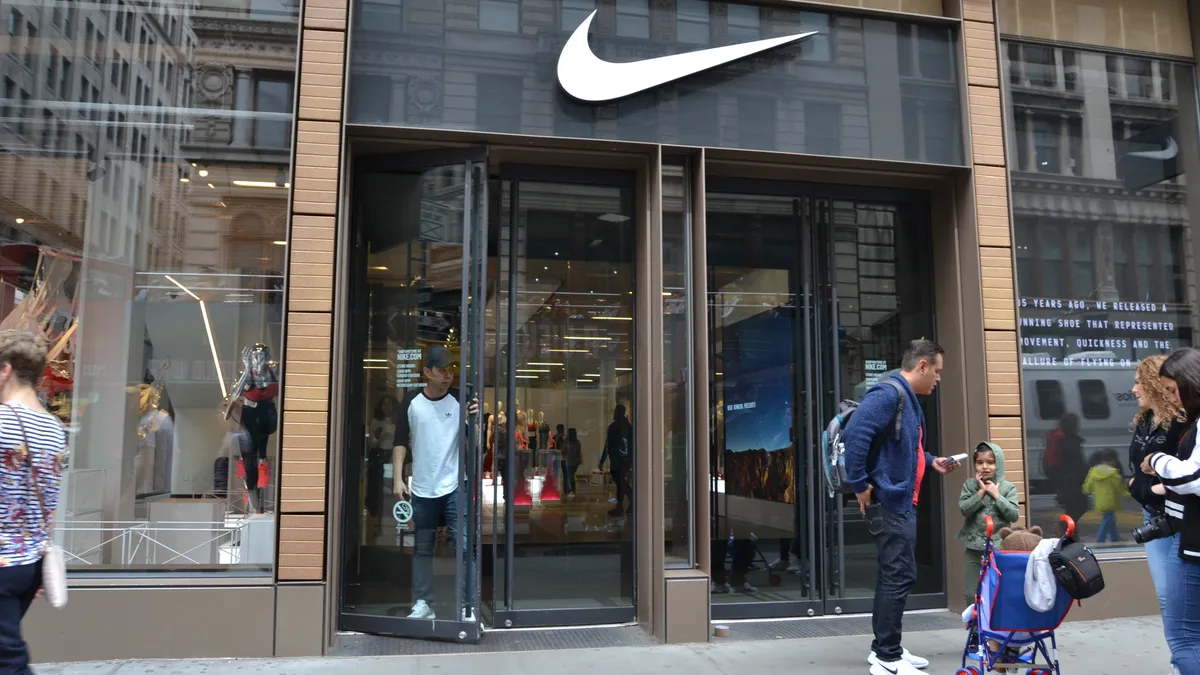Dive Brief:
- In a pair of related cases, the 9th U.S. Circuit Court of Appeals ruled that two groups of retail employees' wage and hour claims under California law relating to off-the-clock exit inspections were allowed to proceed (Chavez v. Converse, Inc., No. 17-17070 (9th Cir. June 28, 2019)) and Rodriguez v. Nike Retail Services, Inc., No. 17-16866 (9th Cir. June 28, 2019)).
- The employees, who worked for Nike and its subsidiary, Converse, were required to undergo off-the-clock exit inspections every time they left their stores. Nike submitted expert testimony that its inspections generally took an average of 16.9 to 20.2 seconds, with 97.5% of them taking less than two minutes, according to court documents.
- Nike and Converse argued that the employees' claims should be dismissed under the federal de minimis doctrine, since the amounts of time involved were too small, irregular, or administratively difficult to record. But the 9th Circuit ruled the de minimis doctrine did not apply to wage and hour claims brought under the California Labor Code. Accordingly, it allowed the employees' claims to go forward, reversing prior verdicts in favor of both Nike and Converse.
Dive Insight:
While these cases involve California law rather than federal law, they serve as an important reminder that employees must generally be paid for all time worked, even if the actual time involved for an off-the-clock task seems minimal. Even small amounts of time can add up quickly when multiplied across many days and many employees. Dick's Sporting Goods recently paid out $2.9 million to a class of nearly 11,000 current and former employees in California who, like the Nike and Converse employees, claimed they were required to undergo off-the-clock security checks.
Time spent doing activities that are preliminary or postliminary — before the beginning of or after the end of an employee's principal work activities, respectively — "may or may not" be considered hours worked, under the Fair Labor Standards Act, depending on the circumstances, according to the U.S. Department of Labor.
In 2014, the U.S. Supreme Court ruled that only principal activities are compensable time — meaning activities that are an "integral and indispensable" part of an employee's duties. The court considered security screening activities in that case to be "noncompensable postliminary activities," even though the warehouse workers involved spent nearly half an hour in security screenings every day before they went home.
The de minimis doctrine at the federal level can be a tough (but not impossible) standard for employers to meet, however. Therefore, employers may need to be wary about requiring nonexempt employees to engage in uncompensated work-related activities.













